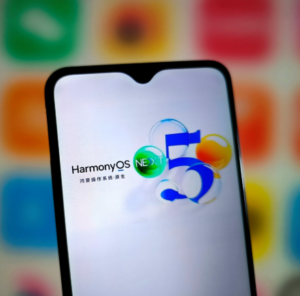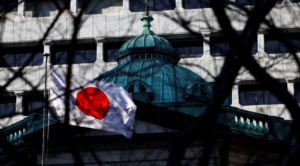TikTok has announced that it plans to appeal the court’s decision. In a statement, company spokesperson Michael Hughes emphasized that the Supreme Court has a strong history of defending Americans’ free speech rights and expressed confidence that the Court would uphold those rights in this case. He criticized the TikTok ban as being based on flawed and speculative information, which he argued would lead to the censorship of millions of Americans. Hughes warned that unless the ban is stopped, it would silence the voices of over 170 million U.S. users and people worldwide by January 19, 2025. Additionally, ByteDance, TikTok’s parent company, has previously stated it has no intention of selling the platform.
In April, President Joe Biden signed a bill requiring TikTok to be sold to a non-Chinese owner or face a ban in the U.S. This decision followed years of concern in Congress about the potential national security risks posed by ByteDance, TikTok’s parent company. Lawmakers were particularly worried that ByteDance might share user data with the Chinese government for surveillance or that the Chinese government could manipulate TikTok’s algorithm to spread propaganda.
In May, TikTok filed a lawsuit to block the law, arguing that it violated the free speech rights of its 170 million U.S. users and unfairly targeted the platform. The court combined this lawsuit with claims from individual TikTok creators.
During a September hearing, U.S. government lawyers argued that TikTok’s algorithm is influenced by its Chinese parent company, which could be used to sway American users. In their ruling, a three-judge panel at the U.S. Court of Appeals for the District of Columbia Circuit acknowledged that TikTok enables free expression among its U.S. users. However, the judges emphasized that because of the platform’s wide reach, both Congress and several presidents have concluded that separating TikTok from Chinese control is vital to safeguard national security.
Finding in favor of the US government:
In its ruling on Friday, the court largely deferred to Congress, agreeing that lawmakers acted within their constitutional rights and followed proper procedures when creating the law targeting TikTok. The judges stated that the legislation specifically addressed the issue of TikTok’s ties to China, without suppressing content or mandating a particular type of content. They emphasized that people in the U.S. would still be free to access and share any content, including Chinese propaganda, on TikTok or other platforms. The law, they noted, focuses on preventing China from secretly manipulating content, which they said aligns with the First Amendment.
The judges were unconvinced by TikTok’s arguments against the national security concerns raised by the U.S. government. They criticized TikTok for only questioning how the government portrayed its data practices, rather than addressing the broader security issues.
A major point of contention in the case was a proposed deal between TikTok and U.S. national security officials, which TikTok claimed could have resolved spying concerns. TikTok suggested the U.S. government acted in bad faith by initially engaging in negotiations, only to later abandon them and support the legislation. U.S. government lawyers, however, argued that the proposed deal did not sufficiently address the security risks. The court sided with the government, agreeing that officials were justified in their decision to reject the draft deal.
Jasmine Enberg, an analyst at eMarketer, called the ruling a significant setback for TikTok, but noted that it wasn’t necessarily the end of the road for the platform. If TikTok’s appeal to the Supreme Court fails and the ban is enforced, she predicted it would cause major disruption in the social media landscape, benefiting competitors like Meta, YouTube, and Snap, while negatively affecting content creators and small businesses that depend on the app for income.
TikTok’s supporters:
Following the court’s ruling, Patrick Toomey, deputy director of the ACLU’s National Security Project, criticized the decision, calling it a “flawed and dangerous precedent.” He argued that banning TikTok violates the First Amendment rights of millions of Americans who use the app for self-expression and communication. Toomey emphasized that the government cannot shut down an entire platform unless it poses a serious and immediate threat, and he claimed there is no evidence of such a threat in this case.
TikTok users also expressed their frustration with the ruling on Friday. One user posted a video saying, “This is nuts,” and added that they didn’t want Meta CEO Mark Zuckerberg to own TikTok, even though there is no indication that Zuckerberg would attempt to buy the app, nor would such a deal likely pass antitrust scrutiny. Another user voiced concern, saying, “I still have my hopes that TikTok will not get banned in the United States, but currently, it doesn’t look good.”
If TikTok is unable to appeal successfully or separate from ByteDance, the ban could take effect just one day before President-elect Donald Trump’s inauguration. Although Trump initially sought to ban TikTok during his previous term, he has recently changed his stance. In March, he stated on Truth Social that banning TikTok would only benefit its competitor, Facebook, and criticized Zuckerberg. Trump even mentioned the possibility of Zuckerberg facing “life in prison” for alleged interference in the 2020 election (a claim for which there is no evidence). In June, Trump posted a video on TikTok itself, saying he would “never ban TikTok.”
It remains uncertain, however, whether Trump could reverse the law or find a way to prevent it from being enforced.














